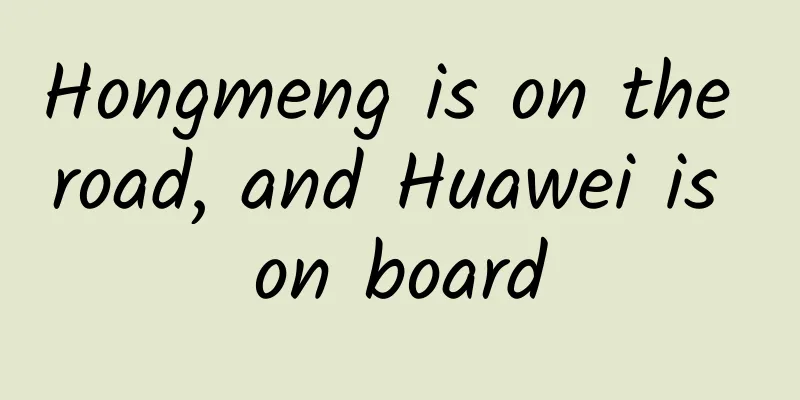Cyanogen's plot to steal Android from Google

|
If you were planning a sophisticated heist on one of the world's largest tech companies, you wouldn't want to let the world know about it. But that didn't stop Cyanogen, a startup developing a software alternative to Android. Cyanogen is unhappy with Google and has publicly complained that Google is not as open as it claims. Although Android's software is open source, the vast majority of Android phones rely on Google's proprietary services, such as Gmail and the Google Play app store. Cyanogen hopes to provide an alternative. Kirt McMaster, CEO of Cyanogen, said: "We want to take Android away from Google." To this end, Cyanogen has turned to Microsoft, Amazon and Yahoo for help, hoping to create a version of Android that is more inclusive of their and other companies' services and to build a Google-flavored alternative to Android within three to five years. Cyanogen's ambitions seem ridiculous at first glance. Outside of markets like China, it's hard to imagine an Android that doesn't rely on Google services. In recent years, Google has introduced a licensing strategy that bundles all its services together, making it almost impossible to sell an Android phone without Google support. Think of Amazon, whose FirePhone has been struggling. But if you talk to McMaster about the company's prospects, he's pretty convincing, and the company's plans to create a truly open alternative to Android don't seem so ridiculous. Android phones without Google The company recently reached an agreement with chip giant Qualcomm to put Cyanogen's software into reference design phones. This deal is a win-win for everyone. Qualcomm can give mobile phone dealers ready-made software that is different from ordinary Android phones, mobile phone manufacturers get Cyanogen's promise of software updates, and Cyanogen gets more users. Cyanogen is not a threat to Google in its current form, it still pre-installs Google services and the APP store on its phones, so the experience doesn't seem different from Google's original Android. But as it grows in size, Cyanogen will have a greater chance of breaking away to gain freedom. Part of Cyanogen's master plan involves working with alternatives to Google services. Imagine, for example, a phone that automatically backs up all your files and data to DropBox, or uses Spotify as the standard for music playback. Cyanogen wants to build an open platform that allows these services to function much more effectively than they do today as standalone apps. If Spotify really creates a Spotify phone, or Facebook creates a Facebook phone, and DropBox really develops a DropBox phone, we will see more innovation in the current app ecosystem. For example, if you tell an Android phone to play music today, by default the search results will come from Google Music Play, but in the future we should be able to talk to the device and say play a song, and that song should play through Spotify on the Sonos in the living room. Cyanogen hopes to be a boon to small companies making virtual assistant software similar to Google Now or Apple's Siri. Even though their technology is superior, they have not been able to compete so far because they are not tied to the operating system. Their only chance of success is to be acquired. In addition, they need a lot of data, which can only be obtained at a deeper level in the operating system. Especially for companies engaged in machine learning and artificial intelligence, without this data, the whole model will fall apart. Cyanogen is still trying to figure out how to accommodate all of these services, and the company hopes to work with a small group of companies first, who may be part of the platform by default. Other companies will be able to participate through a software development kit. App Store Assuming Cyanogen can mobilize a suite of supporting services, it still faces a major hurdle: Cutting out core Google services means losing the Play store and, along with it, the entire Android app ecosystem. Google requires all of its services to be bundled together, so it's impossible to keep the Play store and get rid of the other apps. McMaster had previously vowed to create his own App Store within 18 months, and he believes that this is still possible. Cyanogen's plan is to aggregate multiple App Stores from multiple suppliers. McMaster pointed out that the Chinese market has multiple thriving APP markets, and the same model will work in developed markets. McMaster believes that because of Google's dominance, this model has not been seen in mature markets, but it does not mean that it does not exist. Although the details are still unclear, it sounds like Cyanogen is going to create small retail stores to compete with Walmart giants like Google Play, and each store offers different services. Given that it is really difficult to discover new applications in today's large-scale App stores, their idea seems to be not bad. “We have some ideas and we know the partners have some really great ideas, so it will all come to fruition, there’s no doubt about it.” Open concept No plan is foolproof, and it will only work if Cyanogen can win over a strong alternative to Google's services, and in any case, many people will have a hard time adjusting to using an Android phone without Google services. Even if Cyanogen can string together a diverse array of app stores to offer a ton of choice, it's not an ecosystem. To compete with Google Play, Cyanogen will need to come up with a unified billing system, a unified front against malware, and a less-annoying way to record and restore past purchases. Perhaps this is why Cyanogen hopes not to completely sever ties with Google. McMaster said: "As a company, we love Google and its services. I use Google services every day and we want to work with them, but it's up to Google whether to work with Cyanogen or not." It seems hard to understand why Cyanogen is against Google. McMaster believes: "The notion of 'separating Android from Google' is more of a rallying cry around open Android and an open computing platform. We are not naive enough to think that we will own Android and all 5 billion users." Beyond that, Cyanogen doesn't want to become a similar monopoly power, which would be bad for everyone. "We want users to have a self-service option, and that's what we're fighting for. This is a battle, and we're not just scratching the surface, we're going to shake it up." |
<<: You don’t have any of these, and you say you can write code?
>>: Design and cracking of web verification code from the new verification code of 12306 website
Recommend
When you think of the deep sea, you think of the legendary "giant monster"? There are actually quite a few "prototypes" in reality!
Leviathan Press: To this day, the scientific comm...
The latest ranking of 50 information flow advertising media platforms
The following is the latest traffic rankings of t...
How to deal with plural nouns in iOS project internationalization
The way to handle plural nouns in the internation...
Facebook advertising optimization tips!
For many businesses, peak season performance may ...
After experiencing OPPO Watch, I found that it is not just a smart watch, but also the "key" to open IoT.
Although OPPO is still a smartphone manufacturer ...
In a few thousand days, will humans enter the intelligent age?
[Editor's Note] Currently, general artificial...
A guide to Tik Tok account positioning, content and monetization!
I often see other people’s short video accounts w...
From becoming famous overnight to being euthanized, what did Freya the walrus experience in her life?
Swimming in the sea, diving to eat seafood, lying...
Sad, singer Coco Lee passed away! Can girls who love to laugh also suffer from depression?
Last night, a sad news swept across major social ...
Starting today, WeChat can transfer money to QQ
Today, Tencent has finally taken this step, that ...
[2021 Summer] Senior High School Mathematics Target A+ General Mathematics Sun Moyi
[2021 Summer] Senior High School Mathematics Targ...
New media marketing strategy for B2B!
B2C companies have many ways to use social media,...
WeChat Mini Program has been taken offline due to violations of regulations. What should we do if the Mini Program has been taken offline due to violations of regulations?
Before we knew it, WeChat Mini Programs have been ...
ocpc package is well built, conversion rate increased by 56%
Ocpc has been working well since it was first use...









